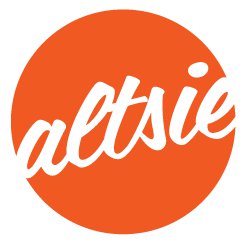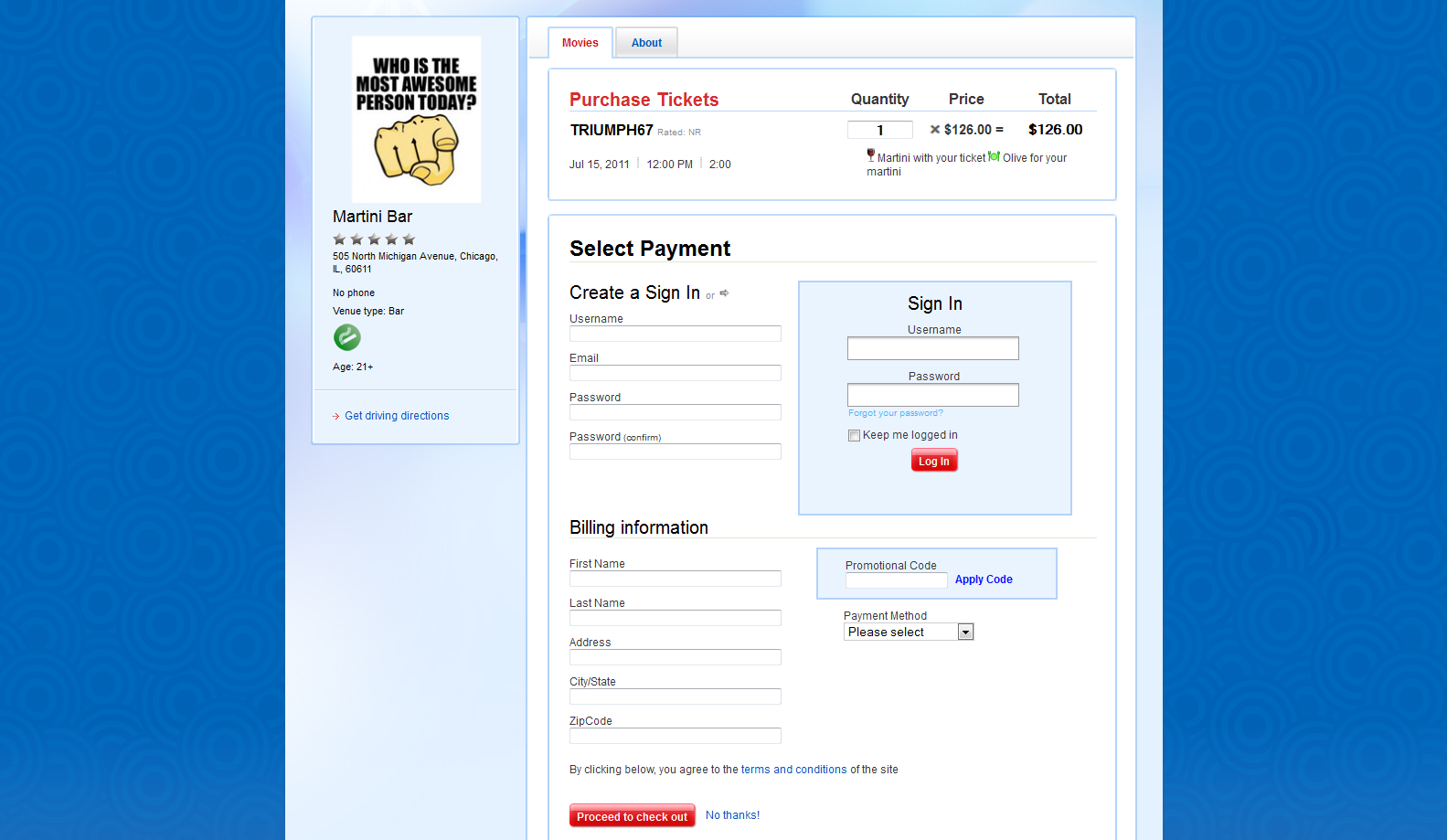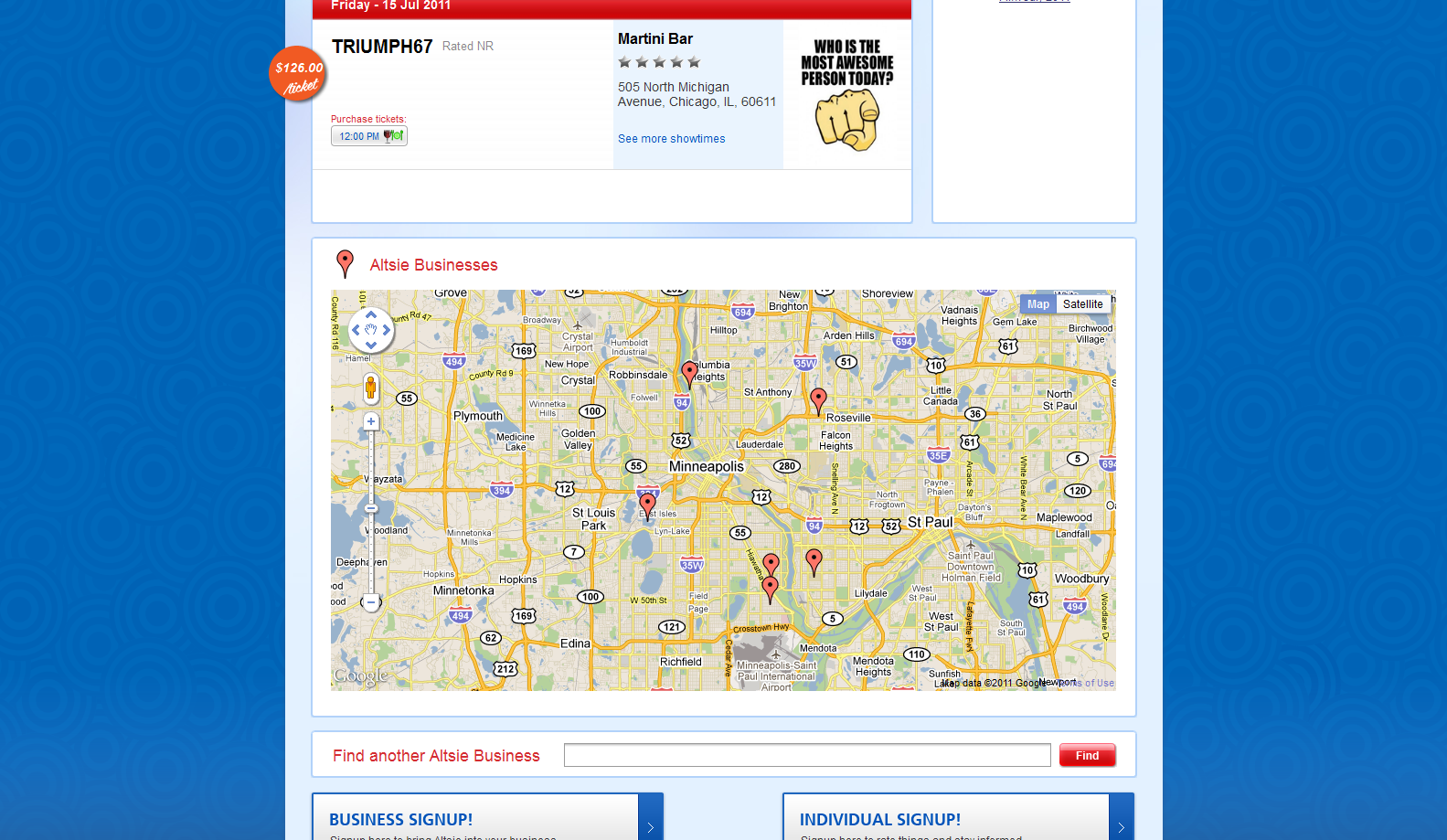Coming Soon to a Coffeeshop Near You?
Local entrepreneur Lucas Rayala has come up with a new way to get independent film seen, and he's looking for content. Now, he just needs to inspire filmmakers and businesses to buy in on the idea and give ALTSIE a try.



LUCAS RAYALA IS NOT A FILM GEEK, PER SE. By his own admission he’s more of an overall projects guy with a proclivity for seemingly impossible tasks, and someone who isn’t afraid to take on a little risk. After reading a 2009 roundtable in McSweeney’s San Francisco Panorama newspaper about the state of movie distribution, the Northern Wisconsin native had what he calls “an a-ha moment” regarding the way films find an audience — and what he personally could do about it. The takeaway from the article, he explained, is that “there’s something like ten thousand films being made each year, right now, in the United States, and only a few hundred of them get a theatrical release.”
The way Rayala sees it, artists pour their hearts and souls into the films they create, but the chance of finding an audience in the traditional theatrical model is nearly impossible. At the same time, he said he’s noticed idle movie screens hanging in Twin Cities bars and other local public meeting places. This got him thinking about an alternative way to show independent film, and how to do so within an existing network that could keep costs to a minimum. “We have the technology these days so that we can do this at a really, really inexpensive level,” he thought; then Rayala started to discuss the idea with pals and others in the community.
After extensive conceptualization — aided by the web expertise of a close friend, the web development skills of an offshore company and a meeting with IFP Minnesota’s Jane Minton — Rayala honed his brainchild into ALTSIE, a fresh way for filmmakers to get their films seen.
His basic plan is to enlist brick and mortar public establishments — like bars, coffee shops and restaurants — as screening locations for quality films that are seeking an audience. Costs will be kept reasonable by using the ALTSIE website as the portal through which subscriptions, film ordering, scheduling and ticket sales can be done efficiently. The name of the endeavor reflects its fully “alternative” nature, which eschews the expensive theatrical distribution machine, in terms of location, content and financial model.
When it launches, ALTSIE will offer one independent film per month (12 a year) to interested businesses that have subscribed to the program. For now, he’s waiving the first year’s fee to places willing to take the leap early and sign up for the service before it launches. After that, the cost to businesses will be $24.99 a month. Business owners will receive films in the mail once a month, and will be able to control just about everything else (i.e. when the film screens, the ticket prices, etc.) via the web portal. Audience members will be able to use the website to search out nearby ALTSIE venues and buy their movie tickets to the screenings online. The site will keep records both for ALTSIE’s corporate entity (which, for now, is just Rayala) and each subscriber business, so all involved can access information about which titles, nights and times bring in the most people.
At the moment, the public face of ALTSIE consists of a promotional site, a Facebook page and a Twitter account, but the functional website will go live as soon as Rayala can find willing filmmakers with decent content. The ALTSIE site was created by web developers in Minsk, Belarus, who offered to build the web presence for Rayala’s self-bankrolled company much more cheaply than the six-figure estimates he had been getting from U.S. based outfits. The ease and flow of the main website, everyone agrees, will be the key to getting businesses, filmmakers and audiences interested in the concept, as it will be the central hub for information and commerce in Rayala’s low-cost plan. A technical writer who also creates fiction and other genres, he knows that ALTSIE’s online presence is what will make or break it.
________________________________________________________
“There’s something like ten thousand films being made each year, right now, in the United States, and only a few hundred of them get a theatrical release.” But with idle screens in bars, restaurants and coffeeshops in every neighborhood, it doesn’t have to be that way.
________________________________________________________
Longtime friend Joe Dolson, who attended Macalester with Rayala, also lent his web development expertise to the project, giving feedback and suggestions during the site creation process. Though his assistance has been more on the technical side, he senses that the real work may be in finding willing businesses and filmmakers to try out the ALTSIE model. “There is going to be a fairly long period of trying to garner interest before we actually launch,” he said. He notes that the challenge of the business will be to get people from all three sides of the project on board: filmmakers, businesses, and movie-goers; he predicts convincing filmmakers to take the leap may prove to be the most difficult aspect. Few folks are interested in being the first to test the project with their films, something Rayala says he fully understands. Like ALTSIE is for him, a person’s film is a precious thing.
Several people saw ALTSIE mentioned on IFP Minnesota’s Festivals and Contests page on their website, but many are not sure what to make of it. As Amanda Becker, winner of the 2010 Fresh Filmmaker Production Grant explained, “It seems intriguing — I haven’t played around with it too much, mostly because I’m not sure how shorts fit into it.”
Rayala says he has concentrated his efforts here in the Twin Cities at first, but that he’s also reaching out to filmmakers nationwide. He acknowledges that it has been a challenge getting those initial bites, in spite of the fact that he’s convinced his distribution model has potential for all genres of film, feature length and shorts. But now that the website development is complete, he says he’s got more time to create flyers, meet people and do whatever it takes to get the project’s name out into the film world. Meanwhile, he’s already had venues in Denver, Colorado and Pullman, Washington sign up for the service on the business side.
“I want filmmakers to be able to make money off my site,” he said emphatically.
He believes the profit-sharing nature of ALTSIE may be what ultimately captures the attention of area filmmakers. To that end, he intends to sweeten the pot for the first films that sign up to be screened at ALTSIE’s venues. And, for filmmakers fearing low quality equipment, he offers reassurance that he’ll require ALTSIE venues to use HD projectors and Blu-Ray players to screen the films.
The bottom line is that Rayala is offering up a new way to get independent film seen. and he’s looking for content. He just needs to inspire filmmakers and businesses to buy in on the project and give it a try.
Perhaps ALTSIE is not the work of die-hard Truffaut fans. Nevertheless, in a world where distribution is truly a hard game to win, Rayala’s venture provides what could well be a valuable alternative to filmmakers looking for an audience. And, for movie buffs, ALTSIE could make that next trip to your favorite watering hole much more interesting — you might soon be enjoying a main course of independent film with your glass of wine or beer.
________________________________________________________
Related links and information:
Filmmakers interested in finding out more about how to particpate should click here >>
For venues with available screens who want details on getting involved in showing films >>
________________________________________________________
About the author: Marsha Trainer created and curates a blog, Skyway of Love, that highlights public art in and around downtown Minneapolis. When not obsessing about the skyway system or food blogging for City Pages, she produces narrative and documentary films, including the award-winning short, Ana’s Playground.